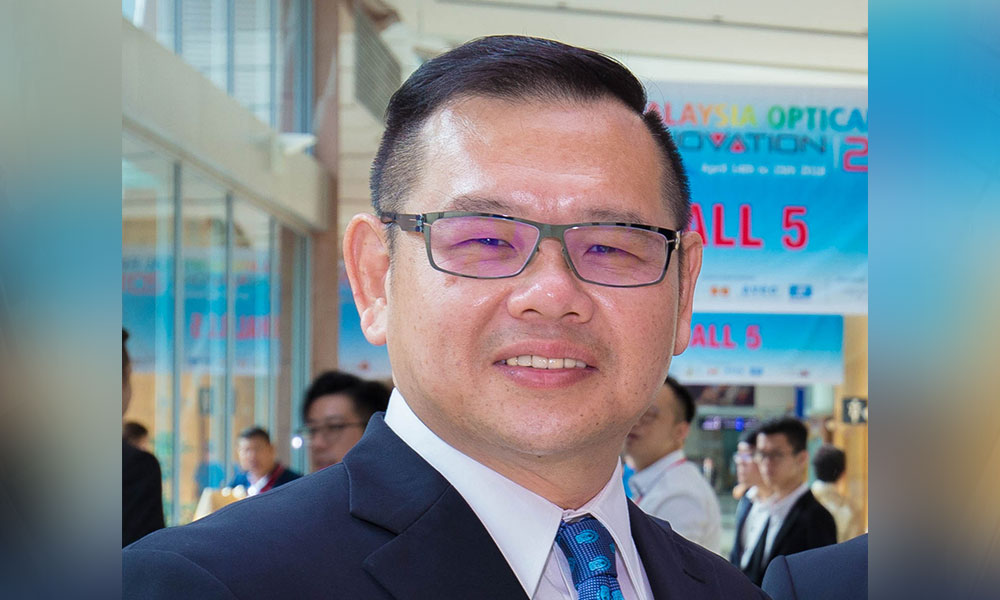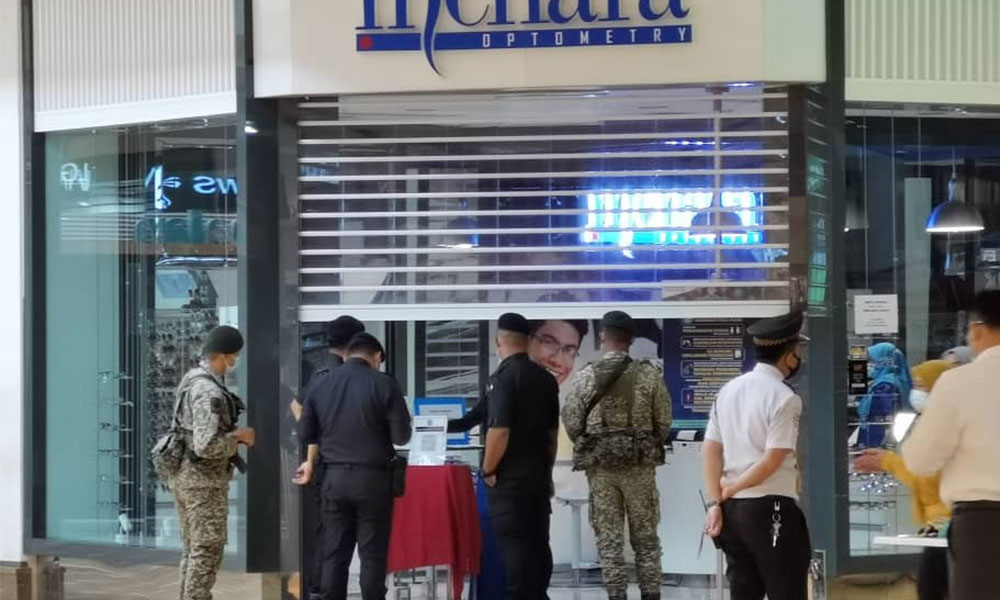Optometrists say they are essential, urge govt to let them operate
Optometry industry players have insisted they should be counted in the list of "essential industries" and have criticised the government for not allowing them to operate during the movement control order (MCO) period.
Several optometry practitioners told Malaysiakini that spectacles are essential items for many people's daily lives. Without them, many would "get into trouble".
Malaysian Association of Practising Opticians (Mapo) president Edmund Teng Cheok Hong shared with Malaysiakini that on just the first day of the MCO, a food delivery rider asked for help to adjust his spectacle frames.
The rider accidentally sat on his spectacles, bending the frames out of shape. The rider was worried that wearing crooked spectacles would endanger him and others on the road. Therefore, he could not continue working.
Teng said that during the MCO period, many people will break their spectacle frames or glasses. They may even face eye infection problems.
Both will require assistance from optometry practitioners, he said, who are unable to operate and "serve the public" due to government restrictions.
Teng also said if people who need to use new spectacles were forced to use spare, or old ones, they would suffer from eye pain.
He is also worried that the public would resort to illegal or informal channels to buy spectacles, which would lead to an increase in unmonitored eye disease.
According to Teng, the current global prevalence rate for myopia is at 30 percent. He believed that the percentage of Malaysians who have myopia and need to wear spectacles is high as well.

Industry hit with RM108 million monthly loss
Malaysian Optometry Association (MOA) president Steven Ng Choon Lim estimated that the industry stands to lose RM108 million per month during the latest MCO implemented across five states and three federal territories.
Ng recalled that when the MCO was implemented last year, the industry had to stop operating for one-and-a-half months. Their total loss was about RM247.5 million, he said.
He said that, during this period, the demand for spectacles might still be high, coming from students who have to attend exams, workers who are working from home, and from medical frontliners.
Ng added that many customers who wear contact lenses have to purchase new lenses regularly and have to get their eyes checked to avoid infection.
'Optometrists are eye disease frontliners'
Ng is a member of the Malaysian Optical Council, which is under the Health Ministry. He explained that optometry practitioners are not merely businessperson who configure and sell spectacles to their customers.
For him, an optometry practitioner is a frontliner in preventing eye diseases.
“We are not merely configuring a pair of spectacles, we will check whether the customers have cataract or glaucoma.”

Both Teng and Ng agreed that optometry is a professional medical service and should be listed as an essential service industry.
Teng said: “The government always thinks we are ‘shops that sell spectacles’. It implies that we are businessmen who sell spectacles.
“In modern society, we call it optometry. It involves optometrists and opticians. We are more focused on eye care.”
Teng also complained that the government’s announcements were too last minute, resulting in some of his customers being unable to collect their spectacles in time.
“We have to arrange courier services to send to them. But this is very unprofessional, because, by right, we need to ensure that the customers don't feel unwell when they wear the spectacles.”
Optometrists able to decide which are urgent cases
Teng and Ng shared that they have implemented their own SOPs for the past few months, including limiting the number of customers, making masks mandatory and sanitising regularly.
They said the government has no reason to worry that optometry businesses will spread the virus.

An optometrist who requested anonymity told Malaysiakini that optometrists have medical experience and knowledge, therefore, they are able to decide whether a customer is facing an urgent situation and whether the customer needs to conduct an eye check immediately.
“When the pandemic is so serious, how do we decide which cases are urgent and need immediate attention? It will need judgment and knowledge.
“We are able to check whether they (patients) are facing sight-threatening risks. We have instruments to check whether a person needs medical attention immediately,” she said.
She manages an optometry practice in Johor Bahru and has been in the industry for 12 years. She said if an optometrist diagnoses that a customer needs medical attention immediately, they are able to write a referral letter for the patient to get treated in hospitals.
As an optometrist, she explained that she was trained to prevent and cure eye diseases. She had to intern at a hospital before graduation to gain experience doing the rounds at the wards, working in pharmacies, and shadowing doctors before she could obtain a practising licence.
She felt that her profession was not being respected when other health industries were allowed to operate.
Malaysiakini is reaching out to the Domestic Trade and Consumer Affairs Ministry and National Security Council (NSC) for their response on this matter.
A government source told Malaysiakini that the ministry had asked the NSC to reconsider allowing opticians and optometrists to operate.
According to Senior Minister (Security) Ismail Sabri Yaakob, opticians were on the list of things not allowed under the MCO.
However, when the Sabah state government announced its own SOPs, optometrists who have registered with their respective professional bodies were allowed to operate. - Mkini
✍ Credit given to the original owner of this post : ☕ Malaysians Must Know the TRUTH
🌐 Hit This Link To Find Out More On Their Articles...🏄🏻♀️ Enjoy Surfing!




















Post a Comment